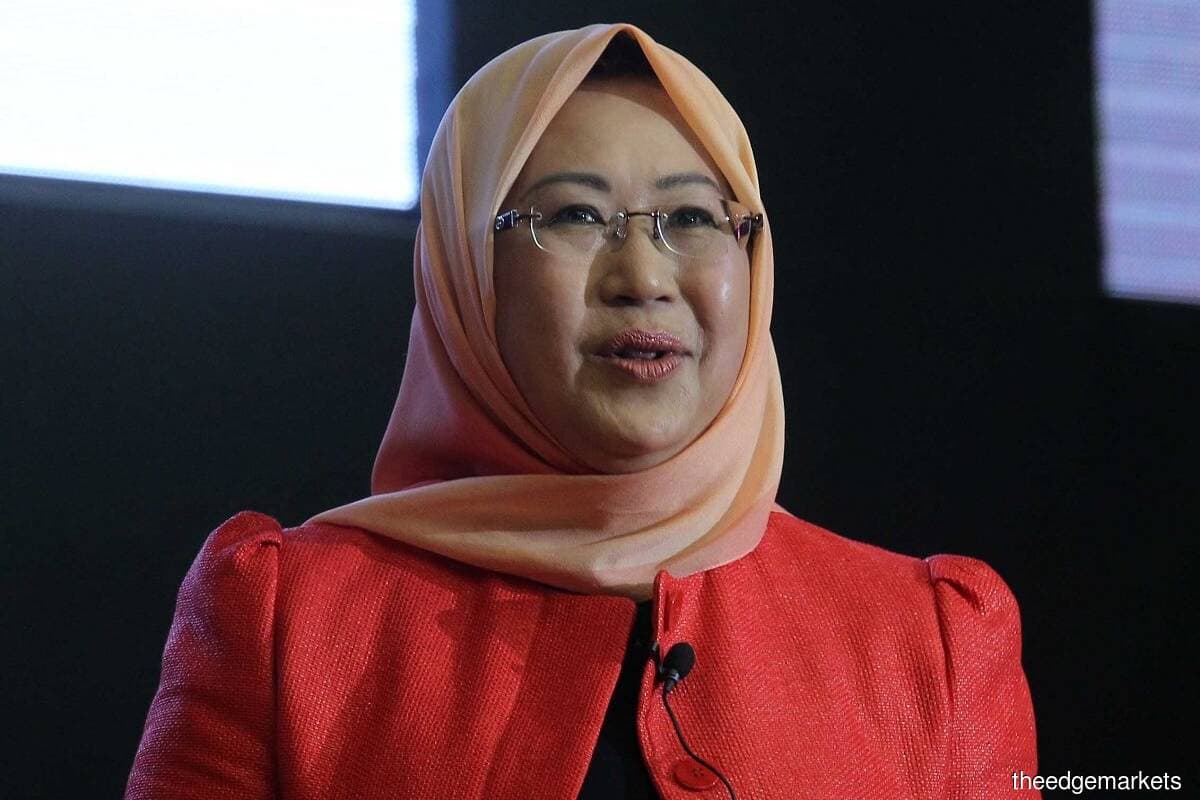
KUALA LUMPUR (Dec 6): The unfolding climate crisis demands that Asean nations pull together to take urgent action, but member states need a fresh approach to decision-making to be effective in this effort, says international humanitarian figure Tan Sri Dr Jemilah Mahmood.
“Oftentimes when we think about Asean cooperation, we tend to look back at the ‘Asean Way’ of consultation — quiet diplomacy, consensus-based decision-making and the all-prevailing non-interference principle. But the climate crisis, by definition, is a risk looking forward, not backwards and needs a new engagement strategy between member states,” she said.
Jemilah, who is the Prime Minister’s Senior Adviser on Public Health, made this comment in her keynote address on “Investing in regional climate resilience” at the Climate Governance Malaysia webinar on Dec 3.
Climate Governance Malaysia is the national chapter of the World Economic Forum’s Climate Governance Initiative, which seeks to support the growing awareness and development of climate-effective board governance.
In her speech, Jemilah captured the sense of distress among scientists, environmental guardians and money managers about the lack of decisiveness on policy measures and market-based solutions to limit the environmental health crisis arising from the climate emergency.
“The climate and other threats are real and increasingly imminent. Our region is lagging, full of false promises and empty declarations. We must act, we must act together, and we must act now, no matter how exhausted we are by the last ten months,” she said, referring to the Covid-19 pandemic as a small blip in comparison to the impacts of the climate crisis.
Jemilah, who is well known in Malaysia and abroad as the founder of the Mercy Malaysia volunteer relief organisation and for numerous other roles in public life, also identified the business community as a key factor in the climate equation.
“Business drives our presence on this planet, but in the face of the climate crisis, it is almost like a zero-sum game. Businesses can choose to either be proactive, recognise the risks and mitigate the impact in time; or come unprepared and merely approach the unmitigated risks reactively,” she said.
While more work is needed to clarify which economic activities are environmentally friendly and which are destructive, Jemilah noted that Bank Negara Malaysia has shown the way by outlining a set of guiding principles to support the classification of business activities towards climate risk mitigation.
“But what is more important is for that same level of understanding and conversations to trickle down to the board levels where actual decisions occur for the businesses,” she said.
Drawing lessons from the Covid-19 pandemic, Jemilah noted that it is a story of good governance and strong leadership. The increasing regional focus brought upon by the pandemic, she said, points to a prime opportunity for Asean to take the lead in building climate resilience for the region’s 650 million people.
Here again, Jemilah saw a leadership role for business.
“Malaysian businesses are the powerhouse of our economy. Perhaps it is now time for those same businesses to look beyond our borders and see how they can responsibly engage at the regional level, to assist Asean in becoming the regional force for change that I don’t see emanating easily from anywhere else in our corner of the planet,” she said.
A “Council of the Wise”, said Jemilah, could be established to guide the Asean organization through the complexities of the climate crisis.
The council, comprising business and government representatives from Asean member countries, could:
- horizon scan macro threats and challenges posed by climate change, health, urbanisation, natural disasters and other socio-economic factors
- liaise with the Asean Working Group on Climate Change and other climate- and disaster-related bodies
- review and propose improvements to Asean’s political and operational systems and architecture to address these threats, and
- remain as a permanent advisory body to Asean on ongoing implementation and review for selected disaster and crisis-related issues.
In discussing Jemilah’s address, Datuk Seri Johan Raslan, director of the Institute of Directors, raised several issues, including the role that should be played by non-governmental organisations in addressing the climate crisis.
Jemilah called on these groups to work in partnership with the corporate world and to keep their voices loud in their mission to bring nature back into balance.
On a personal note, Jemilah advocated a reduction in meat-eating, pointing out that it takes 5,000 litres of water to produce a quarter-pounder burger.
Another step is to use a carbon tracking app to monitor one's personal carbon footprint.
In her opening remarks, Climate Governance Malaysia founder Datin Seri Sunita Rajakumar said there is now recognition that businesses are facing real physical risks from the climate crisis and need to keep up with an evolving regulatory landscape.
“There is a growing urgency on the need for companies to understand, assess and disclose their physical climate risks and opportunities,” she said.
Investors are already demanding hard targets, asking a host of questions about the companies’ commitments to climate resilience goals, disclosure of emissions, their reduction and the timelines for achieving them, said Sunita.
“These investors are calling for credible transition plans from all companies and clarifying those plans with emerging best practices,” she said.
“Transition plans are going to reveal leaders and laggards on the road [to climate resilience],” said Sunita.
“We need an all-of-government and all-of-society approach to climate risk,” she said.
To a question on whether action on the climate crisis was coming too late, Jemilah responded: “It is never too late to take action. The point of no return may get pushed further. We just have to keep working on addressing climate change and keep going forward.”